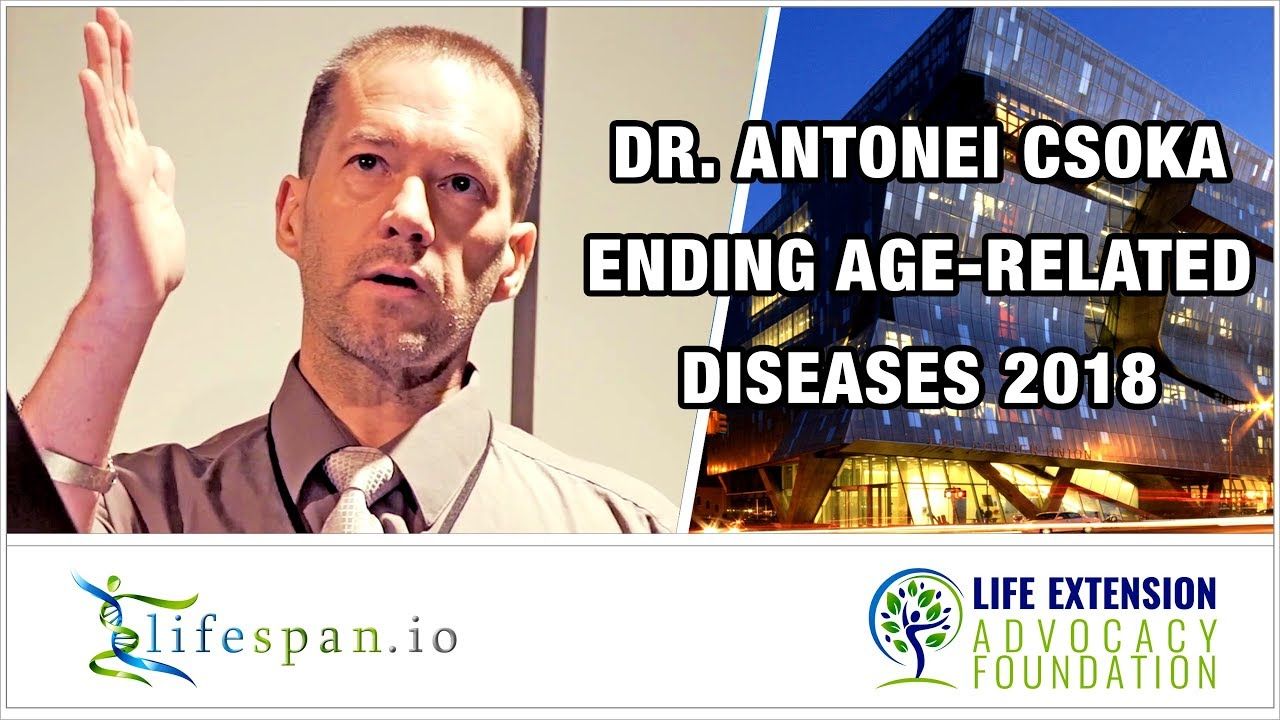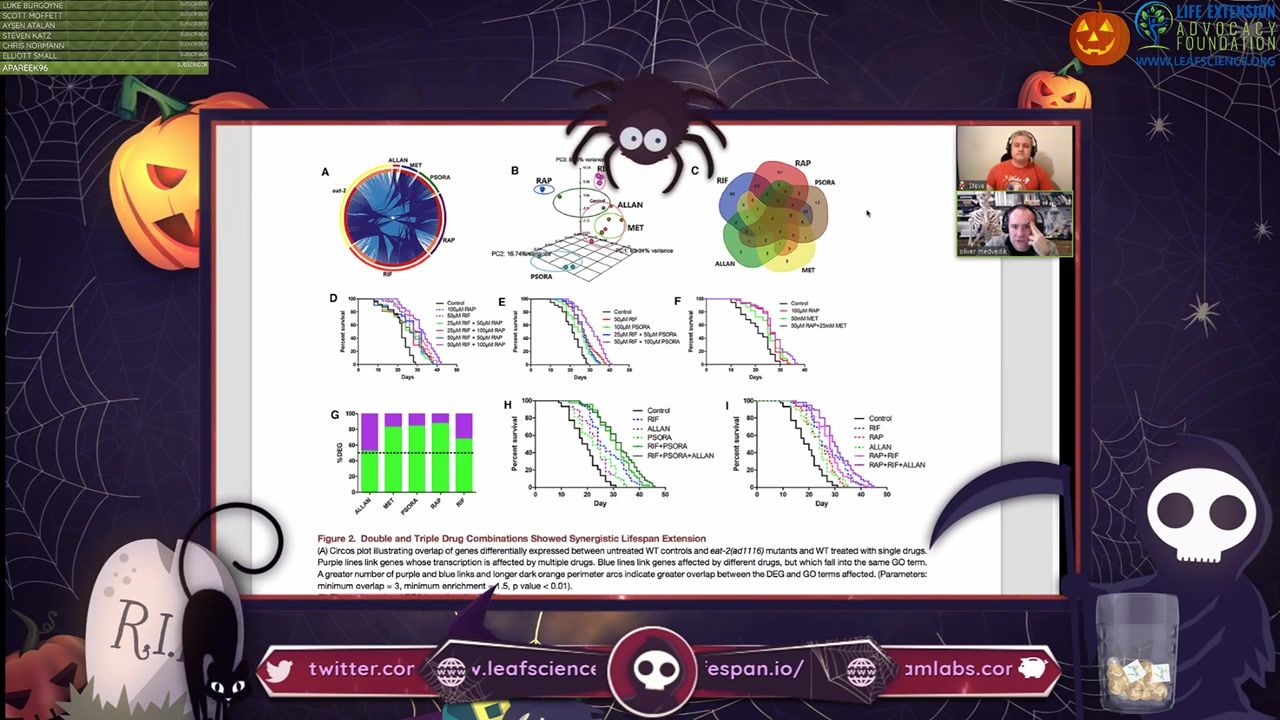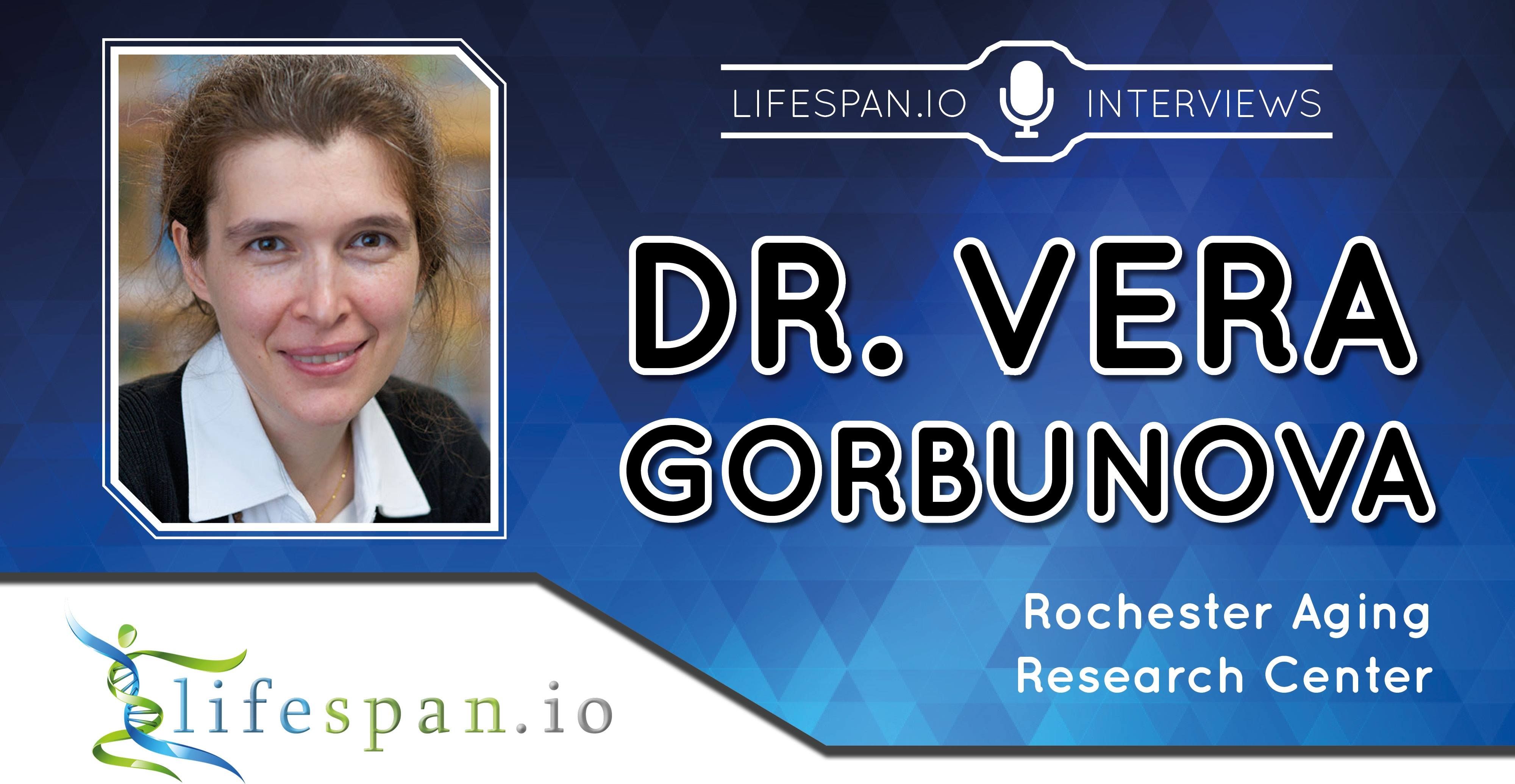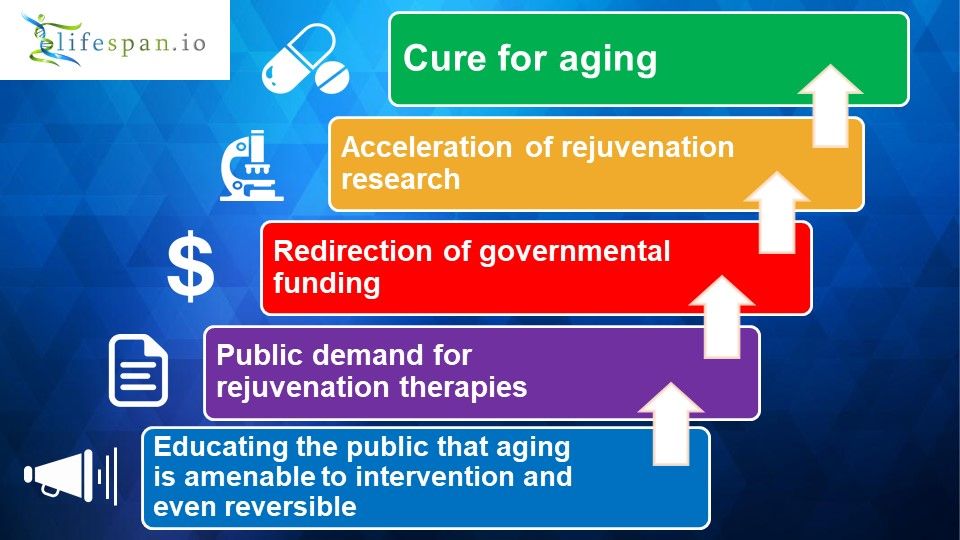Archive for the ‘life extension’ category: Page 452
Oct 31, 2018
Dr. Antonei Csoka at Ending Age-Related Diseases 2018 — Aging as Meta-Disease
Posted by Cathy Miller in categories: biotech/medical, life extension

Good information 💜.
Dr. Antonei Csoka of Howard University discusses the concept of aging as meta-disease and about the hierarchy of some of the Hallmarks of Aging. He also discusses some of the philosophical and metaphysical underpinnings for the goal of overcoming age-related disease.
Continue reading “Dr. Antonei Csoka at Ending Age-Related Diseases 2018 — Aging as Meta-Disease” »
Oct 30, 2018
Journal Club October 2018 — Drug Synergy Slows Aging
Posted by Steve Hill in categories: biotech/medical, life extension

The October Journal Club will be focusing on a new study in worms where a combination of compounds acted in synergy to almost double lifespan.
SUMMARY There is growing interest in pharmacological interventions directly targeting the aging process. Pharmacological interventions against aging should be efficacious when started in adults and, ideally, repurpose existing drugs. We show that dramatic lifespan extension can be achieved by targeting multiple, evolutionarily conserved aging pathways and mechanisms using drug combinations. Using this approach in C. elegans, we were able to slow aging and significantly extend healthy lifespan. To identify the mechanism of these drug synergies, we applied transcriptomics and lipidomics analysis. We found that drug interactions involved the TGF-b pathway and recruited genes related with IGF signaling. daf-2, daf-7, and sbp-1 interact upstream of changes in lipid metabolism, resulting in increased monounsaturated fatty acid content and this is required for healthy lifespan extension. These data suggest that combinations of drugs targeting distinct subsets of the aging gene regulatory network can be leveraged to cause synergistic lifespan benefits.
Oct 29, 2018
The How, Why, and Whether of Custom Digital Avatars That Live on After We Die
Posted by Mike Ruban in categories: life extension, neuroscience
Imagine a digital avatar of ourselves living on after we die. They could help comfort our loved ones, and they could also preserve expertise and experience. There’s some benefits, but it’s still questionable if this is comforting, or just creepy.
A digital afterlife may soon be within reach, but it might not be for your benefit.
The reams of data we’re creating could soon make it possible to create digital avatars that live on after we die, aimed at comforting our loved ones or sharing our experience with future generations.
Continue reading “The How, Why, and Whether of Custom Digital Avatars That Live on After We Die” »
Oct 29, 2018
Models may show how brain layout affects performance
Posted by Genevieve Klien in categories: life extension, neuroscience
Using computational models of individual brains could shed light on how brain stucture affects how we perform language-related tasks.
Oct 29, 2018
Pursuing Outreach Opportunities
Posted by Steve Hill in categories: life extension, transhumanism
Today we have the transcript of “Pursuing Outreach Opportunities: Lifespan.io’s Experiences in Promoting Healthy Life Extension”, a talk that LEAF Outreach Director Elena Milova gave at TransVision 2018, a transhumanist conference in Madrid, Spain recently.
This is the transcript of “Pursuing Outreach Opportunities: Lifespan.io’s Experiences in Promoting Healthy Life Extension”, a talk that LEAF Outreach Director Elena Milova gave at TransVision 2018, a transhumanist conference in Madrid, Spain.
My name is Elena Milova, and I work with the Life Extension Advocacy Foundation, a non-profit organization headquartered in New York City. Our main activity is to support research on regenerative therapies that can possibly make human life healthier and longer. To do that, we have developed the non-profit crowdfunding platform Lifespan.io, and, as of now, we have gathered more than 300 thousand dollars in support of 7 scientific projects. We are currently running a campaign to support David Sinclair’s NAD+ Mouse project, a study of NMN and its effect on healthy lifespan in mice.
Oct 29, 2018
RbAp48 And Osteocalcin Play A Crucial Role In Age-related Memory Loss
Posted by Nicola Bagalà in categories: life extension, neuroscience
Protein RbAp48 works with osteocalcin to preserve memory in old age.
In a recent open-access study, scientists at Columbia University have demonstrated that a protein known as RbAp48 crucially interacts with osteocalcin to help preserve memory. The protein, which is present in mice as well as people, declines with age, contributing to age-related memory loss [1].
Abstract
Continue reading “RbAp48 And Osteocalcin Play A Crucial Role In Age-related Memory Loss” »
Oct 28, 2018
Bioquark Inc. — Life Of A Fighter Podcast — Ira Pastor
Posted by Ira S. Pastor in categories: aging, bioengineering, biotech/medical, DNA, futurism, genetics, health, innovation, life extension, neuroscience
Oct 27, 2018
Interview with Dr. Vera Gorbunova: What can we learn about longevity from the naked mole rat?
Posted by Steve Hill in categories: biotech/medical, life extension

In this interview, Vera Gorbunova, Professor of Biology at the University of Rochester and a co-director of the Rochester Aging Research Center, talks about our current understanding of the mechanisms behind the longevity and genome stability of exceptionally long-lived mammals and how this knowledge could be used to create therapies to extend healthy human lifespan.
The interview was made by Steve Hill and Elena Milova, members of the board of Lifespan.io.
►This video is presented by LEAF. Please support us by becoming a “Lifespan Hero”: http://lifespan.io/hero
Oct 26, 2018
Emerging From the Trance
Posted by Steve Hill in categories: biotech/medical, life extension
It seems that opposition against anti-aging medicine may be slowly starting to crumble. For example, Lifespan.io’s current crowdfunding campaign is going extremely well, and journalists begin to talk about senolytics in positive terms, without any predictions of doom and gloom resulting from these upcoming drugs. Make no mistake—the pro-aging trance is still alive and well; for each journalist who puts time and effort into actually understanding senolytics and the health benefits that they are expected to bring to older people, there’s probably five who show little to no knowledge of the subject and rage against unspecified “immortality” technology and related impending catastrophes. This should tell us something about the kind of understanding they have of what they criticize—or how badly they need a clickbait piece to bring in visitors.
Today, the pro-aging trance is something that only rejuvenation advocates are aware of and battle against, but maybe, fifty years from now, it will be an interesting phenomenon of the past for psychologists to figure out. Maybe, on the YouTube of 2068, there will be videos making fun of it in pretty much the same way that some people today make fun of the old belief that hysteria was caused by stray uteruses wandering around women’s bodies.
The pro-aging trance is rather interesting indeed, as people who are subject to it tend to commit fallacies that they would never commit in other contexts. A very good example of this is the objection to inequality of access: this reasoning assumes that rejuvenation would not be available to everyone who needs it, for economical, political, or whatever reasons; understandably, this is perceived as a profound injustice, which pushes a fair number of people to make a leap and conclude that the best way to avoid this injustice is to never develop rejuvenation to begin with.













